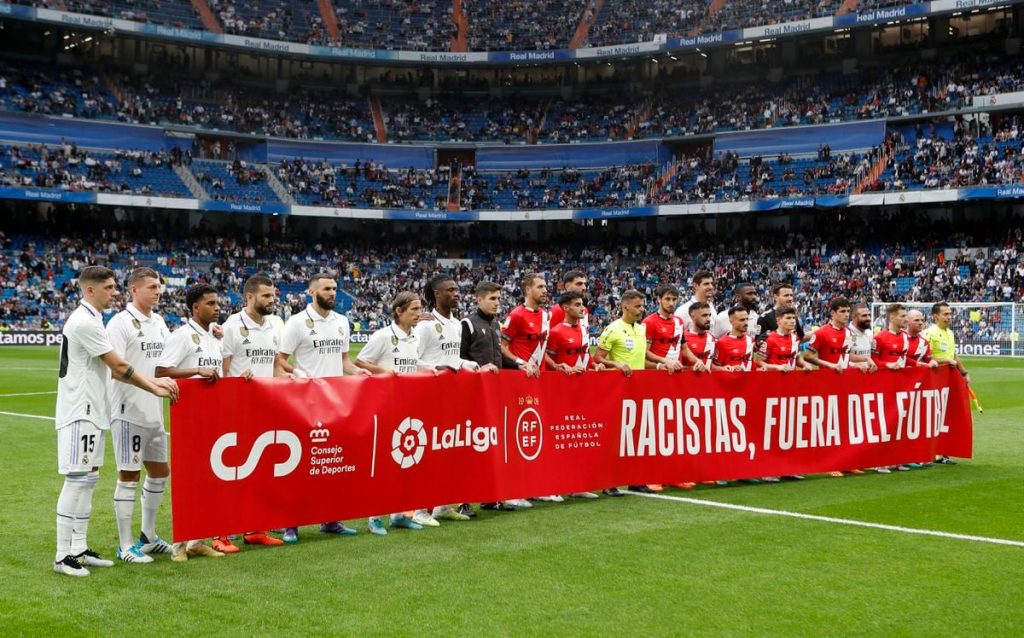Three racist incidents over the past weekend have once again highlighted the serious problem of racism in Spanish football stadiums. Despite the existing legislation – Law 19/2007 against violence, racism, xenophobia, and intolerance in sports – the situation continues to occur with alarming frequency, with no tangible improvement. On Saturday, at the Coliseum stadium in Getafe, Argentine player Marcos Acuña from Sevilla was insulted from the stands with chants of “Acuña, monkey” and “Acuña, you come from the monkey”. In the same game, Sevilla coach Quique Sánchez Flores heard chants of “gypsy” directed at him. In the 69th minute, the referee activated the racism protocol, stopped the game, and ordered that the illegality of the insults be announced over the loudspeaker. The game resumed shortly after. On the same day, at Las Llanas field in Sestao, Senegalese goalkeeper Cheikh Sarr from Rayo Majadahonda got into a confrontation with fans behind his goal, who were yelling “f*cking monkey” and “f*cking sh*tty black”. The referee expelled the goalkeeper, as dictated by the rules, but Sarr’s teammates left the field and the match was suspended.
The usual arguments that these are minority behaviors and isolated incidents no longer hold. What happened in Getafe and Sestao are just the latest known cases in a long series of similar incidents. The examples are endless and have been occurring for years. Almost two decades ago, Cameroonian Samuel Eto’o from FC Barcelona was fed up with the racist insults he received from Zaragoza fans and walked towards the locker room during a match, although he eventually continued playing. A year later, at the Santiago Bernabéu, Brazilian Marcelo from Real Madrid had to endure fans from Atlético shouting racist slurs at his young son who was accompanying him. In recent times, Brazilian forward Vinicius from Real Madrid is often the target of racist insults inside and outside many Spanish stadiums. The legal framework against racism in stadiums already exists, but it is clear that it is not enough. It is essential for clubs to take responsibility for what happens in their facilities and prevent these types of offenses. In fact, with some regrettable exceptions, they have already succeeded in addressing other aspects related to violence in the stands such as the throwing of objects and the presence of violent ultras groups.
Regarding the former, and in response to the severity of administrative sanctions, they took the necessary measures to prevent the throwing of cushions and bottles. As for the latter, much more difficult issue, FC Barcelona and Real Madrid set an example by disbanding their powerful radical groups: Boixos Nois and Ultras Sur. Given these precedents, it seems reasonable to suggest that toughening sanctions against teams whose stadiums witness racist acts is the most effective way to eradicate this scourge, which is intolerable in a European democracy and within a sport with such social significance.


